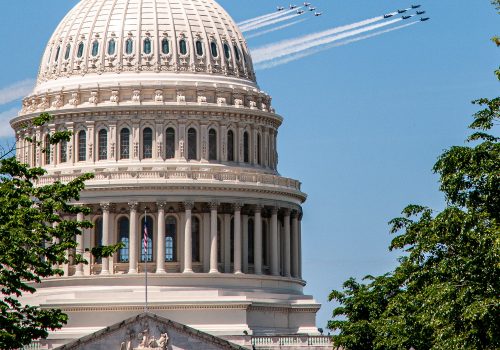Economic might, national security, and the future of American statecraft
This report argues that America’s economic power underwrites its national security. The authors believe more can be done to sustain the country’s economic might and to leverage it in service of American primacy. Read the chapters here or download the PDF.
I. Introduction
Given the many significant challenges America faces today — including high levels of debt, political discord, the rise of China, and the emergence of Asian economies as the drivers of global growth — what is the country’s plan for preserving its great power primacy? In this article, the authors examine the power that resides at the intersection of economics and national security, and propose how better to sustain the country’s economic might and leverage it in the service of American primacy.
The COVID-19 crisis and the resulting economic devastation have fueled already growing concerns about the state of the U.S.-led world order. For the past decade, public figures have raised concerns about the rise of China, the erosion of the American dream, the perceived failures of American leadership, and America’s relative loss of power. Now, suffering through a tragic international crisis, it is only natural that people might wonder what the future holds. Whether one agrees with these concerns or not, it is undeniable that many Americans are uneasy about their country’s future.
About the authors
David H. McCormick is the CEO of Bridgewater Associates, a global macro investment firm, and chairman of the Atlantic Council’s International Advisory Board. Previously, he served in senior positions in the Treasury Department, the White House, and the Commerce Department. He is a graduate of West Point and a veteran of the First Gulf War.
Charles E. Luftig is a senior manager at Bridgewater Associates. He previously served as the deputy general counsel in the Office of Management and Budget and held several legal and policy roles at the National Security Council, including senior adviser in the office of the National Security Adviser.
James M. Cunningham is a research associate at Bridgewater Associates. He previously worked as a national security analyst at the American Enterprise Institute and the Hoover Institution.
This report was first published in the Texas National Security Review.

